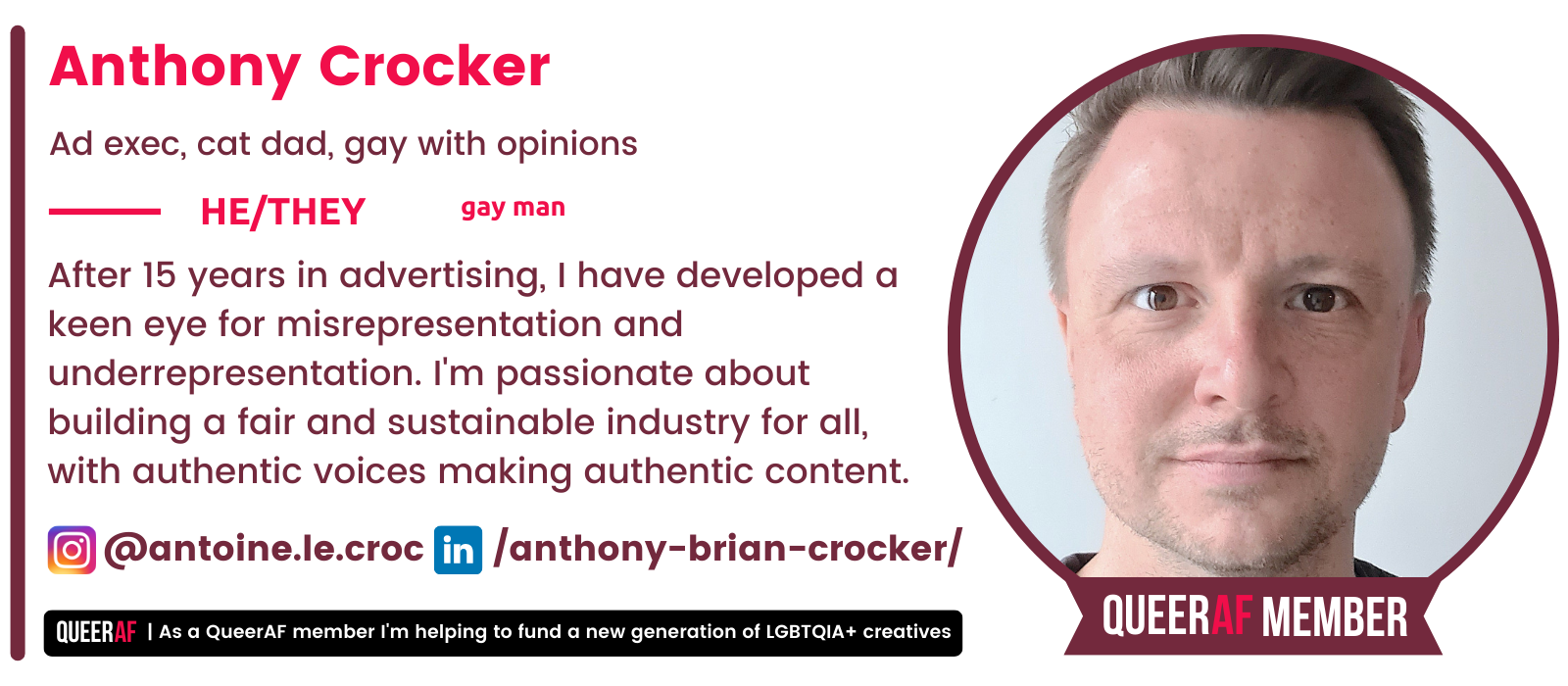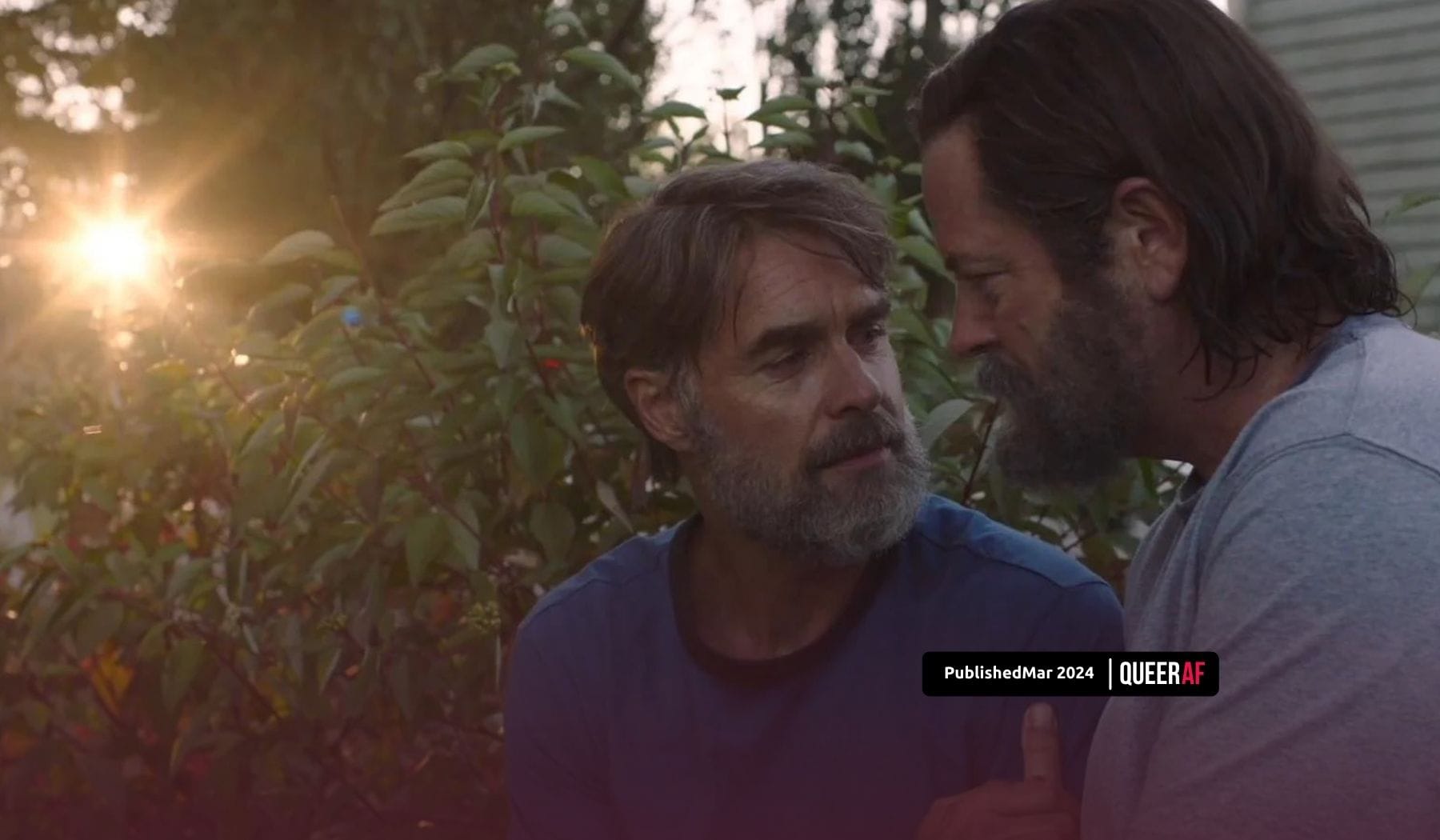
TL;DR: Nick Offerman's fighting talk when accepting an award for their Last Of Us role is commendable, but our beloved Murray Bartlett is left KO'd for a third round. The long term impact of this casting has meant a straight cis man has become the defensive voice of a community more than capable of fighting its own corner.
Last weekend, Hollywood royalty Nick Offerman gave a now-viral speech accepting a win at the Independent Spirit Awards (Best Supporting Performance in a New Scripted Series for his portrayal of Bill in The Last Of Us episode Long, Long Time), with a no-nonsense response to the homophobia he had received:
"It's not a gay story, it's a love story, you asshole".
This unapologetic and frank response is exactly what we expect from an ally. Thanks for your service to the community Nick!
But this now marks the third time that Offerman has won an award in a category in which both he and openly gay Murray Bartlett (his onscreen partner of equal billing and talent) were nominated.
Yet again, the posterboy for arguably one of the biggest moments of gay representation on television in 2023 is a straight cis man, and Bartlett is left on the sidelines without a platform.
As much as I applaud Offerman for normalising a love story between two men, to me and many in the community the very fact the story focused on a gay romance was not irrelevant but absolutely crucial. It was an opportunity to place gay love front and centre, not fade it into normativism - a point Offerman may have missed, not identifying as gay himself.
It’s impossible to imagine that Offerman was not noted by judges for taking such a risk to his career. A straight man long associated with whisky and carpentry choosing to play gay?! Shock horror! After all, it is a well known industry trope that queer roles are more likely to win awards if played by straight actors. This attitude validates an underlying homophobia: that Offerman is somehow risking his reputation by association.
The question of straight actors playing queer roles is something that still sparks fierce debate within the community.
Despite high profile figures such as the godfather of British television Russell T Davies advocating for authenticity in queer representation by casting roles that align to actors’ gender identity and sexual orientation, the fundamental idea that actors should be able to portray all walks of life is a fair point to consider.
But I believe that take is too idealistic. It ignores years of misrepresentation, crude depictions of LGBTQIA+ characters who are the butt of the joke, or a complete lack of representation altogether. Ownership of our stories is critical.
The sad reality is that queer actors are being denied the chance to tell their stories. Unless you're blessed with the conventionally handsome features and low growl of Luke Evans, chances are that as an openly queer actor you are indeed being passed over without consideration.
Hetronormative aesthetics and performance styles are often prioritised even for explicitly LGBTQ+ characters, with producers assuming queer coded traits are distracting or inauthentic. It’s a toxic hangover of queer characters being typecast in the light relief joker role too many times.
When creating Netflix’s The OA, Brit Marling and Zal Batmanglij wrote the character of Buck as a ‘14 to 15-year-old Asian American transgender male’. The casting team advised them to adapt the character, because it was too specific and they would never fill the role.
Marling and Batmanglij were confident they could find someone that authentically matched this description. An open casting call saw no less than 400 aspiring actors apply for the role. The result was the screen debut of the incredible Ian Alexander.
How many times were we denied an incredible character such as Buck that could only ever have been played by Alexander? How many times has a queer role been watered down or given to a straight actor, simply to make our fabulous lives more palatable to a straight audience?
Offerman’s portrayal of Bill in The Last Of Us was beautifully written and sensitively performed, truly deserving of the awards it has won. But the long term impact of this casting has meant a straight cis man becoming the defensive voice of a community more than capable of fighting its own corner.
So thanks for having our back Nick, but we need to face a fact we’ve been putting off for a Long, Long Time: when it comes to telling stories about LGBTQIA+ lives, nobody does it better than (The Last of) Us.

Our approach to journalism is different.
We live in a saturated world of doom scrolling and constant media. Online, digital, mobile, it bombards us wherever we are. But it doesn’t reflect us.
For too long, the media has been driven by short-term, revenue-led incentives. The diversity of those who write our stories has barely changed.
Journalists chase divisive content options to deliver for adverts, not the audience - and misrepresent us along the way. The situation is getting worse, and it needs a new approach.
QueerAF members like Anthony fund out work to revolutionise how LGBTQIA+ voices are heard and flourish.
They also directly inform our community-led platform's editorial decisions which are in your hands, not advertisers.











